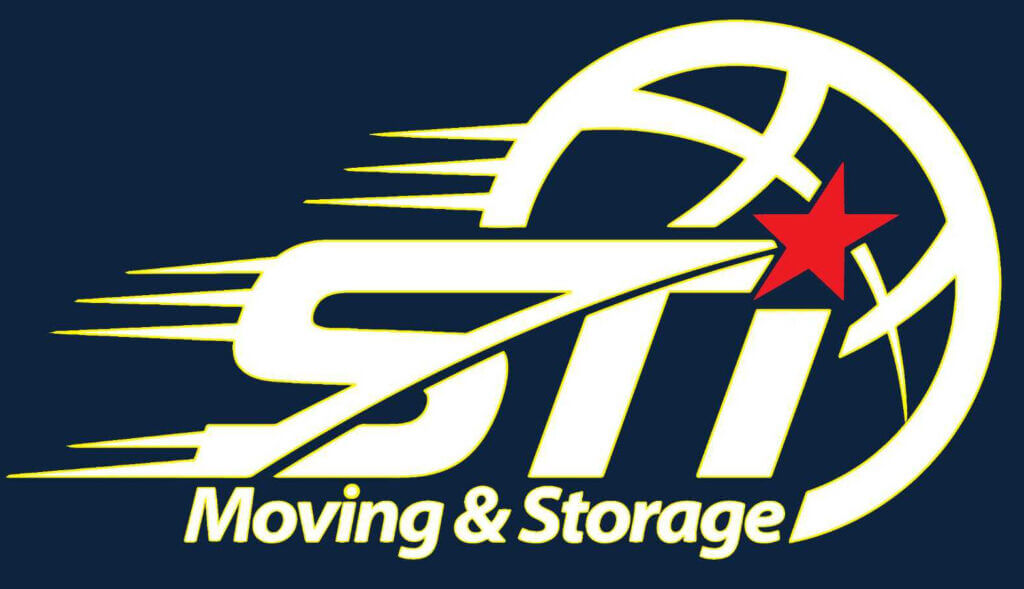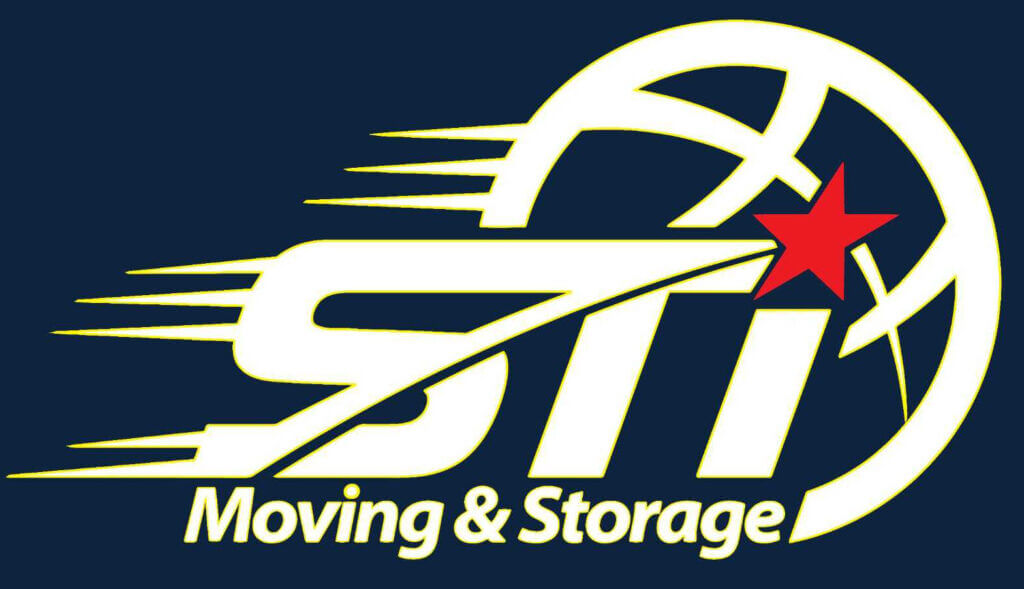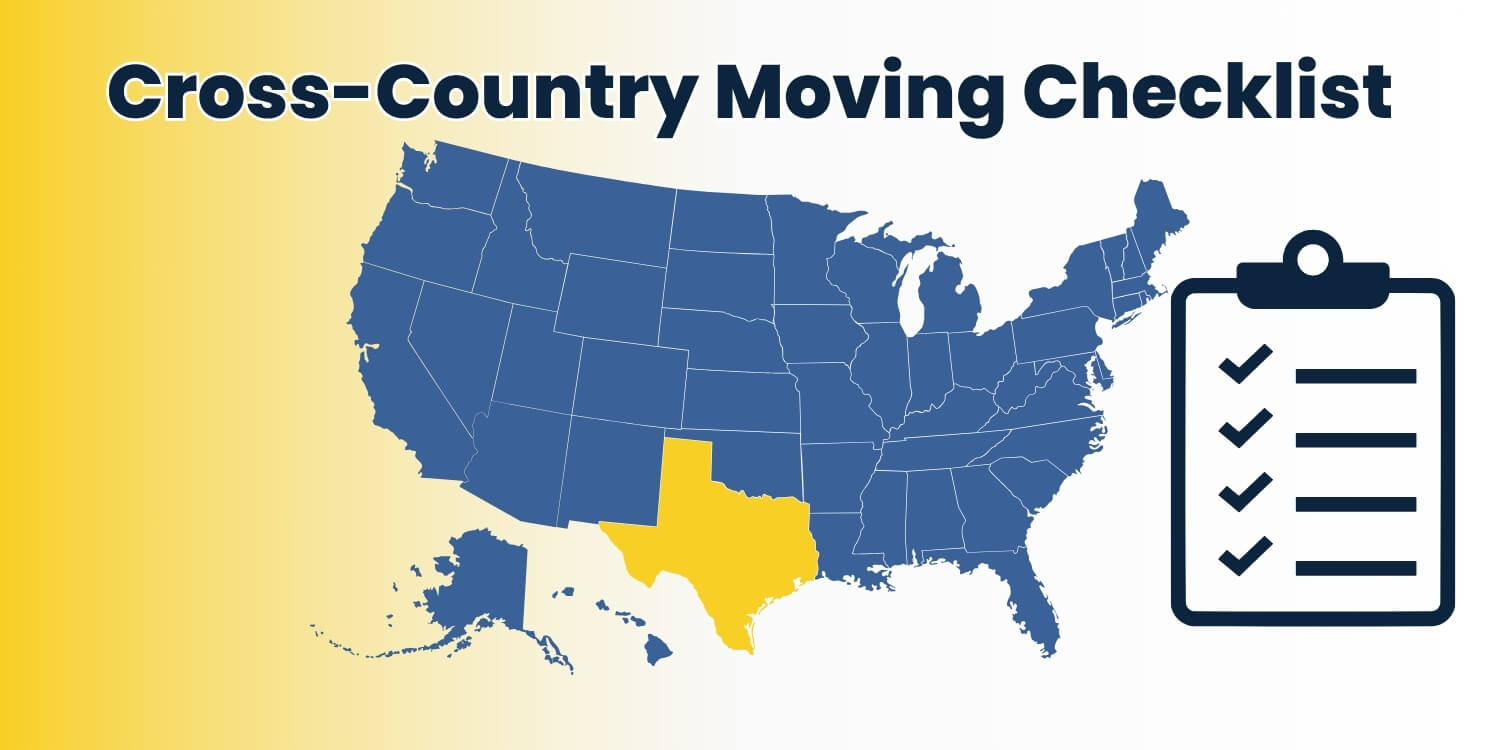Moving across the country is a big adventure, but it can also feel overwhelming. With so many things to plan, pack, and organize, a clear checklist makes everything easier. This guide will help you stay on track and stress-free.
Starting a new chapter in a different place brings both excitement and challenges. To make the process smoother, we’ve put together essential tips and practical advice. By staying organized and following these steps, you’ll feel confident and ready for your move.
Key Takeaways
- Start early by creating a detailed moving checklist and tackling tasks step by step.
- Keep important papers, moving estimates, and other key details in one safe place for easy access.
- Take advantage of helpful resources to make your move smooth and stress-free.
Two Months Before Moving Day
- Sort & Declutter – Grab a coffee, put on some music, and go through each room. Decide what you’ll take and what you can sell, donate, or toss. For valuable items, check if they need special packing or insurance.
- Plan Your Budget – Moving long-distance can be pricey, so start budgeting early. Factor in costs for movers, packing materials, vehicle transport, and unexpected expenses. Costs typically range between $4,000 and $10,000, so plan ahead. Use an online moving cost calculator to get a personalized estimate.
- Find the Right Movers – Don’t rush into choosing a moving company! Take time to compare different options and request in-home estimates. Check online reviews to ensure reliability. It’s worth spending a little more on a trusted mover than risking a bad experience.
- Get Packing Supplies – Start collecting boxes from grocery stores, department stores, or friends. Look for free boxes on Craigslist, Facebook Marketplace, or Nextdoor. Stock up on packing tape, bubble wrap, and markers for proper labeling.
Six Weeks Before Moving Day
- Create a Moving Checklist – Make a step-by-step plan to keep everything on track. List tasks for each week, including hiring movers, packing, and updating your address.
- Arrange Your Travel – Whether you’re driving or flying, plan your trip now. For overnight stays, book hotels or check Airbnb options early to get the best rates and availability.
Staying organized will make your move smoother and less stressful.
One Month Before Moving Day
With only a month left, it’s time to take care of some key tasks!
- Inform Your Landlord – If you’re renting, give your landlord a heads-up about your move. Most leases require 30 to 60 days’ notice, so check your agreement to avoid any penalties.
- Sort Your Belongings – Create a list of your clothes, kitchen supplies, and electronics. This is also a perfect time to take pictures of valuable items for insurance purposes. As you pack, decide what to keep, donate, or sell to lighten your load.
- Update Your Address – Notify important places like banks, credit card providers, and subscription services. Don’t forget to update your address with the postal service to ensure your mail gets forwarded.
Three Weeks Before Moving Day
With just three weeks left, it’s time to focus on important details and get organized!
- Update Your Insurance – Contact your insurance providers to update your policies. Your new home may have different coverage needs, so make sure everything is properly covered.
- Notify Important Contacts – Create a list of places and people who need your new address. This includes your employer, banks, insurance companies, credit card providers, and utility services. Also, transfer medical and school records and set up mail forwarding with USPS.
- Start Packing Non-Essentials – Begin packing items you won’t need right away to avoid last-minute stress. Keep daily essentials like toiletries and bedding unpacked until the final days.
Taking care of these tasks now will make your move smoother and less stressful!
Two Weeks Before Moving Day
It’s almost time! With just two weeks left, you might feel both excited and a little overwhelmed. Take a deep breath—this checklist will help you stay on track.
- Make Arrangements for Pets & Kids – Moving day can be chaotic, so plan ahead. Ask family, friends, or a pet sitter to take care of your pets or children so you can focus on the move without distractions.
- Confirm Moving Plans – Call your moving company to double-check all details. Confirm the date, arrival time, and any other important information to prevent last-minute surprises.
- Gather Important Documents – Collect your passports, driver’s license, social security cards, and other essential papers. Keep them in a secure folder or box so they don’t get misplaced during the moving process.
Handling these tasks now will make moving day much smoother!
One Week Before Moving Day
You’re almost there! With just a week left, it’s time to handle the final details.
Last-Minute Moving Tasks
- Pack Essential Items – Gather important things like documents, medications, and valuables. Keep key paperwork (passport, birth certificate, etc.) in a clearly labeled envelope for easy access. If you’re driving, pack medications and other must-haves in your personal bag to prevent misplacing them during the move.
- Take Apart Large Furniture – Disassemble furniture that won’t fit through doorways or onto the moving truck in one piece. Keep screws and small parts in labeled ziplock bags and take photos before disassembly to make reassembly easier later.
- Use Up or Donate Perishable Food – Decide what to do with food that can’t be moved. Eat what you can, donate unopened items to local food banks, and discard anything that might spoil. Consider hosting a farewell meal with friends or neighbors to use up remaining fridge and pantry items.
- Clean Your Home – If you’re renting, a thorough cleaning increases your chances of getting your full security deposit back. Work systematically through one area at a time or hire professional cleaners if your budget allows.
Taking care of these last-minute tasks will make your moving day run much more smoothly!
Two Days Before Moving Day
You’re almost there! With just two days left, it’s time to handle the final details. Here’s what to focus on in the last 48 hours:
- Pack an Essentials Box – Gather items you’ll need immediately upon arrival, including toiletries, a change of clothes, phone chargers, medications, and important documents. Keeping these in one clearly marked, easy-to-reach box will save you significant stress on moving day.
- Defrost & Clean Your Fridge – Empty your refrigerator and freezer completely, dispose of any remaining food, and thoroughly wipe down all surfaces. Unplug it at least 24 hours before moving to prevent water leaks and unpleasant odors.
- Let Your Neighbors Know – Inform your neighbors about your moving schedule. This courtesy helps them prepare for any temporary disruptions like blocked driveways or extra noise. Clear communication helps maintain good relationships and prevents misunderstandings.
- Confirm Moving Plans – Double-check all details with your movers, friends, or family who are helping. Ensure everyone knows the exact date, time, and any specific loading or packing instructions to avoid day-of confusion.
- Do a Final Walkthrough – Carefully inspect all closets, cabinets, and storage areas to ensure nothing gets left behind. This is also a perfect moment to say goodbye to your old home and mentally prepare for your next chapter.
Move-Out Day
Being well-prepared will make moving day much smoother. Here are a few key things to take care of:
- Go Over Your Moving Checklist – Do one final check to ensure all boxes are packed, labeled, and ready for loading. This helps you catch any last-minute tasks you might have missed.
- Do a Final Walkthrough – Before the movers arrive, take a quick tour around your home. Check all closets, cabinets, and storage spaces to ensure nothing gets left behind.
- Take Photos of Valuables – Photograph fragile or expensive items before the move. These images can support insurance claims if anything gets damaged during transit.
- Give Instructions to Movers – When the moving team arrives, point out items needing special care. Have tips ready to thank them for their hard work. Stay available for questions, but trust their expertise—this is their profession!
- Keep Track of Moving Costs – Maintain your budget and record additional expenses like gas, accommodations, meals, and other travel costs. Monitoring your spending helps avoid financial surprises.
- Do a Final Check – Before departing, secure all doors and windows, turn off appliances, and remove any remaining trash. Take one last look around, say farewell to neighbors, and prepare for your new beginning!
After the Move
You did it! Your cross-country move is complete. Now it’s time to transform your new place into home.
- Check Your Belongings – As items are unloaded, inspect them for damage or missing pieces. Compare with your pre-move photos to verify everything arrived safely.
- Set Up the Essentials – Begin by assembling key furniture like your bed and couch. Unpack bedding and toiletries first to create a comfortable space where you can relax after the exhausting day.
Now, tackle unpacking room by room, starting with critical areas like the kitchen and bathroom. To streamline the process:
- Unpack larger items first
- Maintain organization as you progress
- Use your checklist to track completion
Taking a methodical approach will help you settle in smoothly!
- Update Your Address – Notify your bank, credit card companies, and insurance providers about your new location. Also, confirm that utilities like electricity, water, gas, and internet are properly connected and functioning.
- Get to Know Your Neighborhood – Explore nearby grocery stores, parks, and public transportation options. Introduce yourself to neighbors and familiarize yourself with the area. This will help you feel at home much faster and establish a sense of community.
Frequently Asked Questions
How long does it take to move across the country?
The time required depends on several factors, including distance, home size, and moving method. If you’re handling the move yourself, expect it to take several days. Using a moving company might extend this to a few weeks. Plan time for all phases: packing, loading, travel, unloading, and unpacking.
How far in advance should I start planning my move?
Start planning at least two months ahead of your move. This timeline gives you ample opportunity to research movers, book services, collect packing supplies, and organize your belongings. Remember: the earlier you begin preparations, the smoother your moving experience will be.
What is the cheapest time to move across the country?
The most affordable time to move is typically between late fall and early spring when demand drops significantly. During these off-peak months, moving companies offer better rates and have more flexible scheduling options. Avoid summer months and holidays when prices surge. For the best possible deal, request and compare quotes from multiple moving companies before making your decision.



